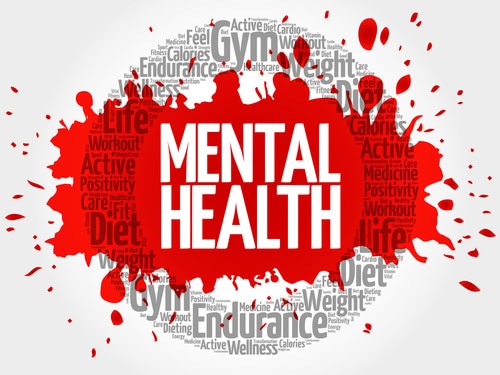The Most Common Mental Health Issues We Face

Finally, “mental health” is becoming part of the mainstream narrative. For years, mental health has been a deeply stigmatized, hushed topic of conversation, left to private corridors and psychiatrist’s offices. Today, mental health is out in the open. People are taking to social and digital media to publicly detail their personal experiences of living with various mental health issues, treating mental health issues, and the way that they practice “self-care”. The more that mental health is discussed, the more that many are importantly realizing they are not alone. Mental health issues are extremely common. One research study in 2017 found that it is more uncommon to not have a mental health issue in today’s world than it is to have one.
What mental health issues are we facing?
Anxiety disorders are the most pervasive mental health issues we face in America. According to the Anxiety and Depression Association of America, 40 million adults are affected by anxiety disorders. Every year, over eighteen percent of the US’s adult population will live with an anxiety disorder. Though there are numerous proven treatments for anxiety disorders, less than forty percent of adults with anxiety disorders will receive any treatment.
Depression is a globally pervasive mental health disorder. WHO, the World Health Organization, has cited that over 350 million people live with depression around the world. Depression is a global contributor to illness, disease, job loss, and loss in production at the workplace. Major Depressive Disorder, the most common form of depression, affected over sixteen million adults in 2015 and is a leading cause of disability.
Is it just anxiety and depression?
Anxiety and depression disorders are not limited to anxiety and depression alone. For example, anxiety disorders can include: generalized anxiety, social anxiety, panic disorder, phobias, obsessive compulsive disorder, and post-traumatic stress disorder. Depression disorders can include major depressive disorder and dysthymia. Depression is also part of a bipolar diagnosis.
Are anxiety and depression co-occurring with other disorders?
Since anxiety and depression are such prevalent mental health disorders, it is common for them to be co-occurring with other mental health disorders. A large number of people who are living with mood disorders, personality disorders, eating disorders, and substance use disorders are also living with either an anxiety or depression disorder. Trauma, whether or not it has manifested into a full diagnosis of PTSD, post traumatic stress disorder, is widely considered to be a primary contributing factor to many mental health disorders.
When someone you love is struggling with mental health, you want to give them as much of your focus, attention, and support as possible. Leave the planning to the professionals. Intent Clinical offers you concierge style custom services for treatment planning, case management, and aftercare coordination. For information on our services and pricing, call us today: (617) 910-3940

